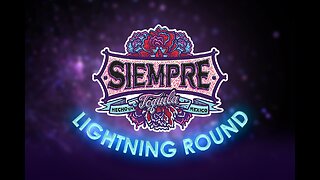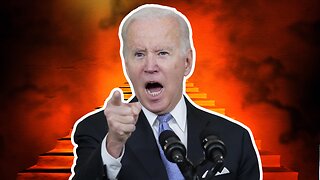Aum Namah Sivaya
Shiva (/ˈʃiːvə/; Sanskrit: शिव, Śiva, (the auspicious one) also known as Mahadeva (the great god) is one of the principal deities of Hinduism. He is one of the supreme beings within Shaivism, one of the major traditions within contemporary Hinduism.
The Sanskrit word "Śiva" (Devanagari: शिव, transliterated as Shiva or Siva) means, "auspicious, propitious, gracious, benign, kind, benevolent, friendly". The roots of Śiva in folk etymology are śī which means "in whom all things lie, pervasiveness" & va which means "embodiment of grace".
Shiva is known as "The Destroyer". In Shaivism tradition, Shiva is one of the supreme beings who creates, protects & transforms the universe.
The highest form of Ishvar is formless, limitless, transcendent & unchanging absolute Brahman, & the primal Atman (soul, self) of the universe. There are many depictions of Shiva. In benevolent aspects, he is depicted as an omniscient Yogi who lives an ascetic life on Mount Kailash as well as a householder with wife Parvati & his two children, Ganesha and Kartikeya. In his fierce aspects, he is often depicted slaying demons. Shiva is also known as Adiyogi Shiva, regarded as the patron god of yoga, meditation and arts.
Shiva is considered the Great Yogi who is totally absorbed in himself – the transcendental reality. He is the Lord of Yogis, & the teacher of Yoga to sages. As Shiva Dakshinamurthi, states Stella Kramrisch, he is the supreme guru who "teaches in silence the oneness of one's innermost self (atman) with the ultimate reality (brahman)."
The iconographical attributes of Shiva are the serpent around his neck, the adorning crescent moon, the holy river Ganga flowing from his matted hair, the third eye on his forehead, the trishula or trident, as his weapon, & the damaru drum. He is usually worshipped in the aniconic form of lingam. Shiva is a pan-Hindu deity, revered widely by Hindus, in India, Nepal, Sri Lanka & all over the World.
Shiva is also called as Bhrahman which can also be said as Parabhrahman. Shiva means nothingness. The word shivoham means the consciousness of one individual, the lord says that he is omnipotent, omnipresent, as he is present in the form of one's consciousness. In Tamil, he was called by different names other than Siva. Nataraja (Dancing Shiva), Rudra (Enraged Shiva), & Dhakshinamoorthy (Shiva Yogi). Nataraja is the only form of Shiva worshipped in a human figure format. Elsewhere he is worshipped in Lingam figure. Pancha Bootha temples are located in south India. Pancha Bhoota Stalam refers to five temples dedicated to Shiva. Tamil literature is enriched by Shiva devotees called 63 Nayanmars (Nayanars).
Supreme Being; Lord of Divine Energy, Meditation, Arts, Yoga, Time, Destruction, Dance; Supreme Destroyer of Evil; Lord of The Devas
Member of Trimurti
The Trimūrti (/trɪˈmʊərti/; Sanskrit: त्रिमूर्ति trimūrti, "three forms") is the Triple deity of supreme divinity in Hinduism in which the cosmic functions of creation, maintenance, & destruction are personified as a triad of deities, typically Brahma the creator, Vishnu the preserver, & Shiva the destroyer, though individual denominations may vary from that particular line-up. When all three deities of the Trimurti incarnate into a single avatar, the avatar is known as Dattatreya.
Other names
Mahesha, Shankara, Bholenath, Neelkanth, Mahadeva
1008 names of Lord Siva
https://pastebin.com/8YW1RNUh
Affiliation
Parabrahman (Shaivism), Trimurti, Paramatman, Ishvara, Deva
Abode
Mount Kailash, Arunachala, Kashi
Mantra
Om Namah Sivaya
Weapon
Pashupatastra, Trident, Parashu-Axe, Pinaka bow
Symbols
Lingam, Trident, Crescent Moon, Damaru Drum
Mount
Nandi (bull)
Festivals
Shraavana, Maha Shivaratri, Ekadashi, Kartik Purnima, Bhairava Ashtami
Consort
Parvati (Adi Parashakti, Sati, Durga, Kali, Mahakali)
Children
Ganesha, Kartikeya, Ashokasundari
Shaiva Siddhanta (Śaiva siddhānta) is a subtradition of Shaivism that propounds a dualistic philosophy where the ultimate and ideal goal of a being is to become an enlightened soul through Lord Shiva's grace. The normative rites, cosmology and theology of Shaiva Siddhanta draw upon a combination of Agamas and Vedic scriptures.
Om Namah Sivaya (Devanagari: ॐ नमः शिवाय; Om Namaḥ Śivāya) is one of the most popular Hindu Mantra & the most important mantra in Shaivism. Namah Shivaya means "O salutations to the auspicious one!", or “adoration to Lord Shiva!", or "universal consciousness is one". It is called Siva Panchakshara, or Shiva Panchakshara or simply Panchakshara meaning the "five-syllable" mantra (viz., excluding the Om) & is dedicated to Lord Shiva. It is a holy salutation to Lord Shiva. This Mantra appears as 'Na' 'Ma' 'Śi' 'Vā' and 'Ya' in the Shri Rudram hymn which is a part of the Krishna Yajurveda & also in the Rudrashtadhyayi which is a part of the Shukla Yajurveda.
ॐ नमः शिवाय
Aum Namah Sivaya
O salutations to the Auspicious one
ॐ
-
 6:09
6:09
TheGetCanceledPodcast
8 hours agoThe GCP | Siempre Tequila Lightning Round | Trivia with Juan Carlos a.k.a Wolfmode
13.4K2 -
 10:13
10:13
DepressedGinger
10 hours agoBiden reaches a NEW historic low vs Trump
14.1K23 -
 8:14
8:14
Vehicles Unlimited
11 hours agoLUXURY ON A BUDGET // 2024 Chevrolet Silverado High County
6.38K2 -
 20:28
20:28
Misha Petrov
13 hours agoHas TikTok Reached Peak Wokeness?
11.2K34 -
 10:06
10:06
Hannah Barron
7 hours agoBirthday Fish!
14.5K15 -
 42:02
42:02
Crime Circus
13 hours agoFemale KlLLER!! Police Interrogation in Ohio - Nicole's Story - Vera Jo Reigle Episode 1
12.3K10 -
 14:11
14:11
ryanhoguepassiveincome
9 hours agoTOP 5 NICHES 🔥 Print on Demand Niche Research # 205 — (4/28/2024)
15.4K1 -
 21:23
21:23
NC Dirt Hunter
9 hours agoMetal Detecting for Dinosaurs on Civil War battlefield. With The Dinosaur Cowboy Clayton Phipps Pt.1
8.67K1 -
 10:56
10:56
Bearing
8 hours agoWHAT IS A WOMAN? Australian Courts Decide
6.39K17 -
 9:27
9:27
tksgarage
5 hours agoDemon Engines Blowing Up More Than Expected! 11 So Far In 60 Days
4.16K1